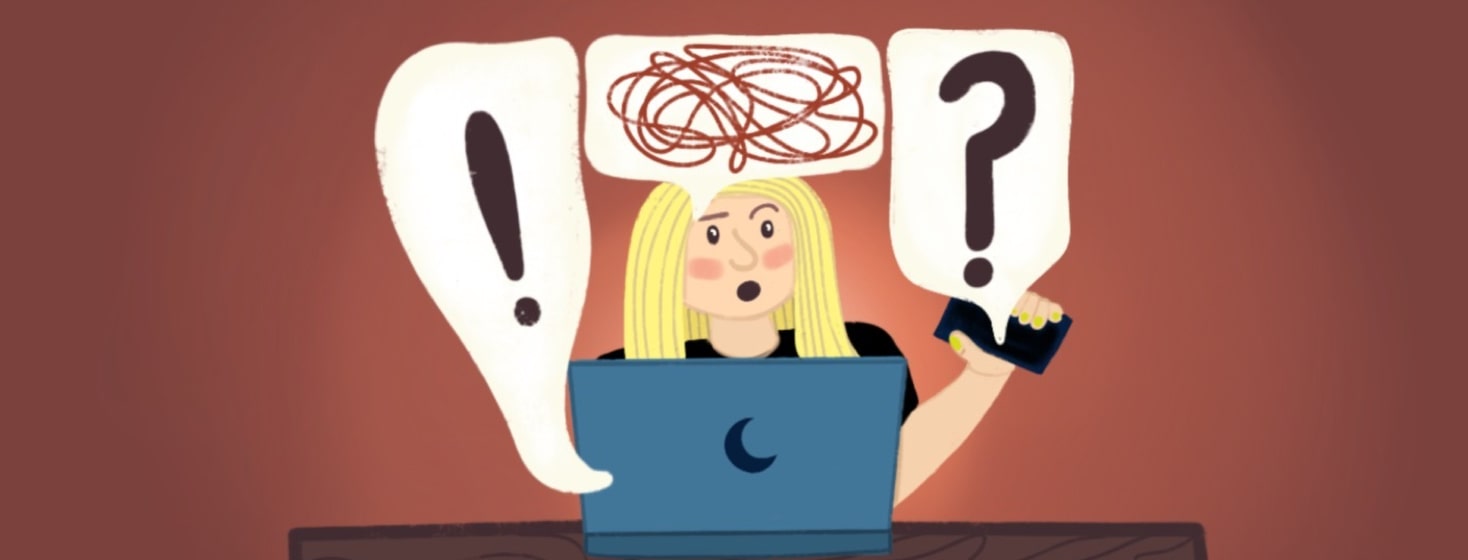"I Don't Have Narcolepsy?": Lauryn's Journey
I was back in my dorm room after finishing my classes for the day. The time slot after my classes was my dedicated nap time, but before I could get settled I got a notification that caught my attention immediately. The email that I had been waiting anxiously for was an email from my sleep center stating that my results from my sleep study and multiple sleep latency test (MSLT) were ready.
The process of obtaining sleep test results
The email explained that I could come pick up my results or have them emailed to me as a zip file. Quickly, I replied back that I would like the zip file since I didn't own a car yet and didn't want to bother asking my roommates for another ride to the sleep center that was 30 minutes away from campus.
Somehow, I had missed the paperwork for the release of my information, so I had to fill the paperwork out, scan it, and send it back before they could release the results to me. While waiting for my results, I switched between texting my friends and refreshing my email. I let my friends know that the sleep center was sending my results through email and I was waiting for them to get back to me.
My closest friends wanted to know if their suspicions about me having narcolepsy were correct. On the other hand, my then-boyfriend wanted to know if he was right about thinking that I didn't have a sleep disorder altogether.
My diagnosis was idiopathic hypersomnia
Soon, the nurse emailed me back with the zip files of my results. I opened the files, and the first word that came out of my mouth was, “Huh?"
I was confused. I was expecting a diagnosis of narcolepsy, but that wasn't the word that was sitting on the diagnosis line. It didn't help that I was going over the results by myself instead of with the doctor.
All the way at the bottom of the page, I had been given the diagnosis of idiopathic hypersomnia.
I flipped back to my conversations with my friends, texting most of them that it wasn't narcolepsy, but some other condition. I ended up Googling the diagnosis, as I had never heard of idiopathic hypersomnia before.
Looking back, I didn't feel I fit the mold for narcolepsy
As I read the Google definition of idiopathic hypersomnia, I went down the list of symptoms, checking off each one in my head. I connected with every symptom that was on the list.
I was surprised, since narcolepsy made sense in context when I was first researching the possibilities of what condition I might have. Looking back, I did feel I didn't fit the mold that was presented for narcolepsy, but at the moment it was the condition that made the most sense. For idiopathic hypersomnia, though, I fit the mold perfectly for what was presented.
Finally, an explanation for my sleepiness
Going back a bit, I wrote that narcolepsy fit in the context of my situation at that moment. That was because when I was researching what was happening to me, narcolepsy was the answer that was constantly being presented.
As long as I can remember, I've always been sleepy. Falling asleep in class or falling asleep at home doing homework. It had become a part of my routine and who I was. In high school, my friends came to the conclusion that I had narcolepsy. By college, I had every notion that my problems were possibly due to having narcolepsy.
Even though I ended up with a diagnosis that wasn't what I was expecting, I am still glad to have gotten an answer to why I was always sleepy.
Are you someone with a diagnosis of idiopathic hypersomnia who previously thought you might have narcolepsy, or vice versa? Share an experience with us in the comments below.

Join the conversation